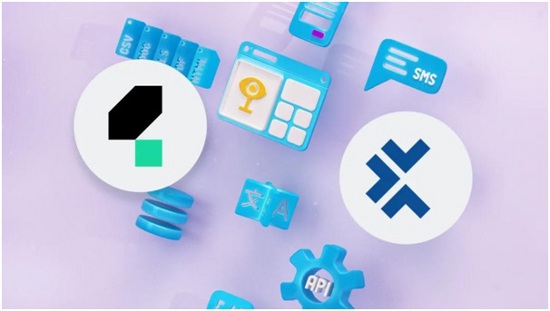Are you tired of the tedious and time-consuming process of manual testing? Looking for a way to automate your software testing and make your life easier? Well, you’re in luck! In today’s digital age, automation testing has become an essential part of any successful software development project. And when it comes to choosing the right automation tool, two names stand out: Katalon and Selenium. But which one is better suited for your specific needs? In this blog post, we’ll dive into the world of automation testing tools and help you decide between Katalon and Selenium. So grab a cup of coffee, sit back, and let’s get started on this exciting journey towards finding the perfect tool for your project!
What is Katalon?
What is Katalon? It’s a question that might be lingering in your mind. Well, let me enlighten you. Katalon is an automation testing tool that aims to simplify the process of test case creation and execution. It provides a comprehensive platform for both beginners and experienced testers alike.
One of the standout features of Katalon is its user-friendly interface. With its intuitive design, even those with minimal coding experience can easily navigate through the tool and create automated tests effortlessly.
Katalon also offers a wide range of built-in keywords and libraries, making it highly versatile when it comes to test case development. Additionally, it supports multiple scripting languages such as Java, Groovy, and JavaScript, giving you flexibility in choosing your preferred language.
Furthermore, Katalon integrates seamlessly with popular CI/CD tools like Jenkins and Bamboo, allowing for easy integration into your existing software development workflow.
Katalon empowers testers by providing them with a powerful yet easy-to-use automation testing tool. Whether you’re working on web or mobile applications, this tool has got you covered!
What is Selenium?
Selenium is an open-source automation testing framework that allows you to automate web applications for various browsers and platforms. It provides a suite of tools and libraries that enable developers and testers to write test scripts in different programming languages such as Java, C#, Python, Ruby, etc.
One of the key features of Selenium is its compatibility with multiple browsers like Chrome, Firefox, Safari, Internet Explorer, etc. This ensures that your tests can be executed on different browsers without any hassle. Additionally, Selenium supports various operating systems including Windows, Mac OS X,and Linux.
Another advantage of Selenium is its robustness and flexibility when it comes to automating complex scenarios. Whether you need to perform simple actions like clicking buttons or more advanced tasks like handling pop-ups or frames within a web page,Selenium has got you covered.
Furthermore, Selenium offers excellent support for parallel test execution which means you can run multiple tests simultaneously, resulting in faster test execution times.
This feature proves especially useful when dealing with large-scale projects where time efficiency is crucial.
Lastly, Selenium’s vast community support makes it easier for users to seek help or find resources online.
There are numerous forums, blogs, tutorials, and documentation available, saving users valuable time during troubleshooting or learning new concepts related to automation testing.
Overall, Selenium’s versatility, cross-browser capability, and extensive community make it one of the most popular automation testing tools in the market today.
Pros and Cons of Katalon
Katalon, an automation testing tool, has gained popularity among testers for its user-friendly interface and comprehensive features. However, like any tool, it also comes with its own set of pros and cons.
One of the major advantages of Katalon is its ease of use. It provides a simple yet powerful platform that allows even non-technical users to create test scripts easily. The built-in recorder feature further simplifies the process by automatically generating test cases based on user interactions.
Another advantage is the extensive support for various platforms and technologies. Katalon supports testing web applications across multiple browsers like Chrome, Firefox, Safari, and more. Moreover, it also offers mobile testing capabilities for both Android and iOS devices.
Furthermore, Katalon provides a rich set of built-in keywords and libraries that enable testers to perform complex actions without writing extensive code manually. This saves time and effort in script development.
Pros and Cons of Selenium
Selenium, an open-source automation testing tool, has gained immense popularity among software testers. Let’s delve into its pros and cons to understand why.
One major advantage of Selenium is its compatibility with multiple programming languages like Java, C#, Python, etc. This flexibility allows testers to work with their preferred language and leverage existing coding skills. Additionally, Selenium supports various web browsers such as Chrome, Firefox, Safari, and Edge. Testers can validate the functionality of their web applications across different browsers seamlessly.
Another pro of Selenium is its extensive community support. As it has been around for quite some time now, there are numerous online forums and communities where testers can seek help or share knowledge. The vast community contributes to constant updates and enhancements in the tool.
However, one drawback of using Selenium is that it requires technical expertise in programming languages. Testers should have a good understanding of scripting languages like Java or Python to effectively utilize the tool’s features.
Moreover, while Selenium offers excellent cross-browser compatibility, it lacks built-in support for handling non-web-based applications or mobile apps out-of-the-box. Additional frameworks need to be integrated for testing these types of applications with Selenium.
How to Choose the Right Automation Testing Tool for Your Project
When it comes to choosing the right automation testing tool for your project, there are several factors to consider. First and foremost, you need to assess the requirements of your project and determine what functionalities are necessary for successful test automation. Are you looking for a tool that supports multiple programming languages? Or perhaps one that offers seamless integration with other tools in your development ecosystem?
Another important consideration is the learning curve associated with the tool. Does it have a user-friendly interface and intuitive features? Will your team require extensive training or can they easily adapt to using the tool?
Scalability is another crucial aspect to keep in mind. Will the chosen automation testing tool be able to handle an increase in workload as your project grows? Can it effectively execute tests on various platforms and browsers without any compatibility issues?
Additionally, it’s worth considering community support and documentation available for the selected tool. Is there an active user community where you can seek help or guidance when needed? Are there comprehensive tutorials and documentation resources readily available?
Don’t forget about cost-effectiveness. Evaluate whether the benefits provided by a particular automation testing tool justify its price tag.
By carefully considering these factors, you’ll be able to choose an automation testing tool that best meets the specific needs of your project while also aligning with your budgetary constraints. Remember, selecting the right tool sets a solid foundation for efficient test automation throughout all stages of development!
Conclusion
Choosing the right automation testing tool for your project is crucial to ensure successful and efficient software development. Both Katalon and Selenium have their own unique strengths and weaknesses, making them suitable for different scenarios.
Katalon offers a user-friendly interface, easy installation process, and extensive features that make it ideal for beginners or those with limited technical expertise. It provides comprehensive test reports, supports multiple languages, and allows cross-browser testing without requiring additional setups. However, its dependency on Java can be a limitation for teams using other programming languages.
On the other hand, Selenium is a powerful open-source framework that offers flexibility and scalability. With support from a large community of developers worldwide, it continually evolves to keep up with industry trends. Selenium’s compatibility with multiple programming languages makes it versatile in integrating with existing systems. However, setting up Selenium requires more technical knowledge compared to Katalon.
When choosing between Katalon and Selenium as your automation testing tool, consider factors such as the complexity of your project requirements, team proficiency in programming languages like Java or others supported by Selenium, ease of use desired by testers involved in the project.
Ultimately there is no one-size-fits-all solution when it comes to selecting an automation testing tool; you need to evaluate both tools based on your specific needs before making a decision.
Remember that regardless of which tool you choose—whether Katalon or Selenium—the goal remains the same: ensuring quality software through effective automated testing practices. Take time to evaluate both options carefully so you can confidently choose the right automation testing tool that aligns with your project goals and requirements.




















